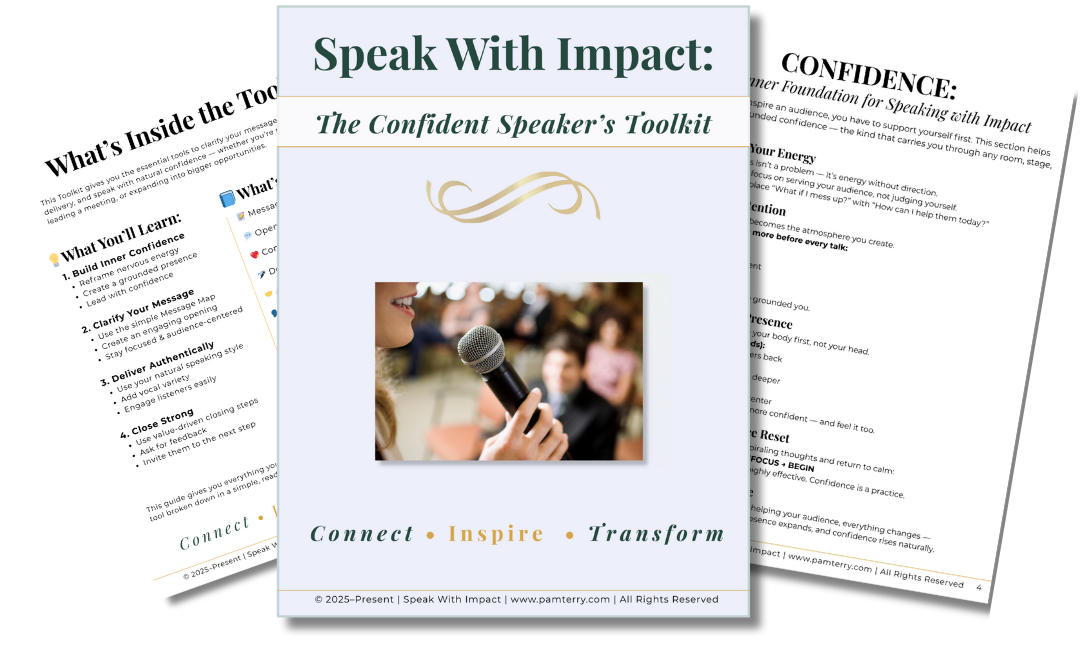When you see how some speakers effortlessly connect with their audience while others struggle, you’re witnessing either emotional intelligence or a lack of it. Are you an emotionally intelligent speaker? Here’s why you should be: Emotional intelligence is a critical factor that separates great speakers from the rest. It’s not just about delivering information—it’s about understanding and managing your own emotions while also tuning in to the emotions of your audience. In this post, we’ll explore why emotional intelligence is essential for public speaking and how developing it can make you a more effective and impactful speaker.
1. How to Know if You’re an Emotionally Intelligent Speaker
Emotional intelligence involves 4 elements: self-awareness, empathy, self-regulation, and strong social skills. To determine if you’re an emotionally intelligent speaker, consider the following:
Self-Awareness: Are you conscious of your emotions before, during, and after a presentation? Do you notice how your mood influences your delivery or how your body language changes based on your emotions?
Empathy: Do you sense how your audience is feeling during your speech? Can you adjust your tone, pace, or content based on their reactions and emotional cues?
Self-Regulation: Can you remain composed and focused when faced with unexpected challenges, like technical issues or tough questions from the audience? How well do you manage your nerves?
Social Skills: How easily do you connect with your audience? Do you engage with them during the presentation, or follow up afterward to understand how they emotionally received your message?
The more you recognize and reflect on these aspects, the higher your emotional intelligence as a speaker likely is. Being aware of your own emotions and those of your audience is the first step in becoming an emotionally intelligent and effective communicator.
2. The Benefits of Being an Emotionally Intelligent Speaker
Being an emotionally intelligent speaker comes with several key advantages that can elevate your presentations and audience engagement:
Stronger Audience Connection: Emotionally intelligent speakers are able to gauge their audience’s emotional state and respond in ways that foster connection. Whether through humor, empathy, or adjusting the tone, these speakers know how to align their message with the emotions of the room.
Enhanced Engagement: An audience that feels seen and understood is more likely to stay engaged. Speakers who can read and respond to emotional cues—such as when to shift from a serious tone to something more lighthearted—keep their audience interested from start to finish.
Resilience Under Pressure: Unexpected challenges can throw many speakers off balance, but those with emotional intelligence manage their reactions calmly. They are better equipped to handle difficult questions, technical glitches, or shifting audience energy without losing focus.
More Persuasive Communication: When you can tap into the emotions of your audience, your message becomes more persuasive. Whether you're trying to inspire, educate, or motivate, understanding what drives your audience emotionally makes your delivery far more compelling.
Increased Confidence: The ability to manage your emotions and recognize how your audience is responding gives you a sense of control and confidence. When you know you can handle emotional shifts, you can focus on delivering your message powerfully.
3. Simple Ways to Improve Your Emotional Intelligence as a Speaker
Emotional intelligence can be developed with practice and mindfulness. Here are a few strategies to enhance your EI as a public speaker:
Practice Self-Reflection: After each speaking engagement, take time to reflect on your emotional state and the audience’s reactions. What went well? What emotional cues did you pick up on, and how did you respond?
Seek Audience Feedback: Ask your audience how they felt during your presentation. Did your message resonate emotionally? What parts of the speech did they connect with most?
Engage in Mindfulness Practices: Mindfulness can help you stay present in the moment, both in your personal life and during presentations. This allows you to be more in tune with your emotions and the emotional energy of the room.
Active Listening: During Q&A sessions or casual conversations before and after your presentation, listen actively to your audience. Picking up on emotional undertones and responding empathetically builds a stronger connection.
4. The Bottom Line: Why Emotional Intelligence Matters
Emotional intelligence is not just an add-on skill for public speakers—it’s essential. When you develop emotional intelligence, you build stronger connections with your audience, maintain resilience under pressure, and deliver more engaging, impactful messages. Ultimately, it allows you to move beyond simply delivering information to creating a meaningful and lasting impression.
If you’re ready to elevate your public speaking, start by assessing your emotional intelligence and actively working on improving it. Your audience will notice the difference, and so will you.
If you liked this post, consider sharing it by clicking below.



